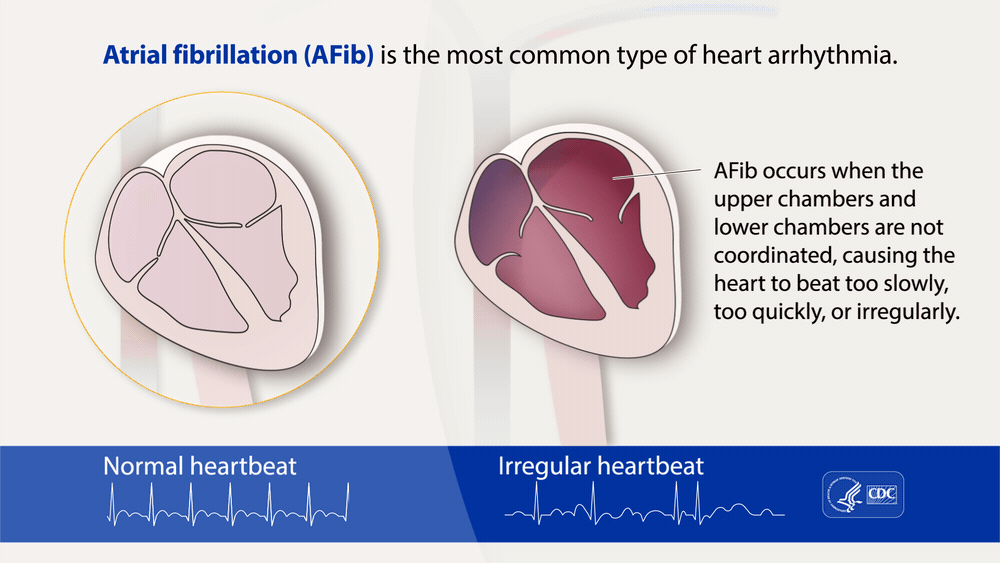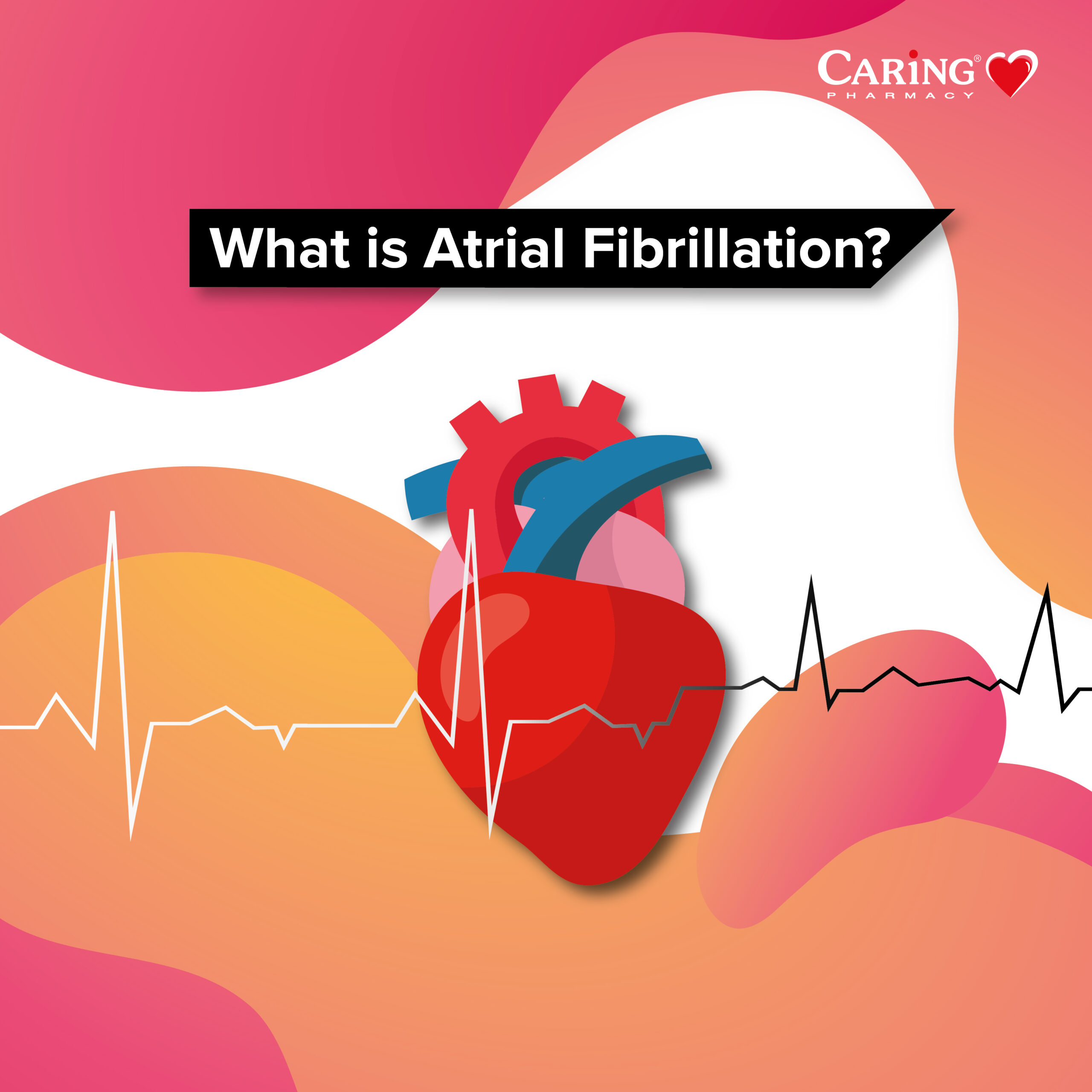
Atrial fibrillation (AF) is an irregular and often rapid heart rate that can increase your risk of strokes, heart failure and other heart-related complications. Atrial fibrillation occurs where the two upper chambers of the heart receive chaotic electrical signals.
While Atrial Fibrillation is only one of many types of irregular heartbeat (arrhythmias), AF is the most common sustained irregular heartbeat.
 Source: Centers for Disease Control and Prevention
Source: Centers for Disease Control and Prevention
Figure above from the US Centers of Disease Control and Prevention (CDC) shows the difference between normal heartbeat and irregular heartbeat due to atrial fibrillation.
Types of Atrial Fibrillation
1) Paroxysmal Atrial Fibrillation
As the word ‘Paroxysm’ suggests, Paroxysmal Atrial Fibrillation gives a sudden but brief attack of atrial fibrillation. It normally stops within 24 hours but may last up to a week.
2) Persistent Atrial Fibrillation
Persistent Atrial Fibrillation is characterised by the condition lasting more than a week. This condition may likely require treatment to terminate.
3) Long-term Persistent Atrial Fibrillation
Atrial Fibrillation that has lasted for more than a year.
4) Permanent Atrial Fibrillation
The irregular heart rhythm cannot be restored. People with this condition may require long term medication to lower the risk of stroke.
Atrial Fibrillation Increases Risk of Stroke
Atrial Fibrillation increases the risk of ischemic stroke by four to five times. Atrial Fibrillation is also responsible for 1 in 7 strokes.
Why does Atrial Fibrillation increase the risk of stroke?
This is due to the fact that blood clots when blood does not flow properly. Atrial fibrillation messes the regular blood pumping rhythm which affects proper blood flow. Platelets (Cell fragments in our blood that are responsible for blood clotting) are more likely to stick together in such condition. Strokes occur when the blood flow to the brain is blocked by the blood clot.
Risk Factors of Atrial Fibrillation
Age
The risk of developing Atrial Fibrillation increases with age. The risk is higher especially after 65.
Other Medical Conditions
Heart problems such as congestive heart failure and coronary artery disease increase the risk. High blood pressure will elevate the risk as well.
Lifestyle Habits
- Binge drinking
- Obesity
- Stress
- Smoking
Surgery
Risk of developing atrial fibrillation is higher in early days and weeks after surgery of the heart, lungs or oesophagus.
Family History & Genetics
If your family member had atrial fibrillation, you are likely to be more susceptible to developing atrial fibrillation.
We can work towards reducing the risk of developing atrial fibrillation by:
- Maintaining a healthy weight
- Limiting alcohol
- Lowering blood pressure
- Managing stress
- Quit smoking
How Do I Know if I Have Atrial Fibrillation?
A doctor will diagnose atrial fibrillation based on your medical and family history, a physical exam, the results from an electrocardiogram (EKG), and possibly other tests and procedures.
References:
- Atrial Fibrillation | cdc.gov [Internet]. Centers for Disease Control and Prevention. 2020 [cited 26 December 2020]. Available from: https://www.cdc.gov/heartdisease/atrial_fibrillation.htm
- Which Type of Atrial Fibrillation Do You Have? [Internet]. WebMD. 2020 [cited 26 December 2020]. Available from: https://www.webmd.com/heart-disease/atrial-fibrillation/types-atrial-fibrillation
- Atrial fibrillation – Symptoms and causes [Internet]. Mayo Clinic. 2020 [cited 26 December 2020]. Available from: https://www.mayoclinic.org/diseases-conditions/atrial-fibrillation/symptoms-causes/syc-20350624
- Atrial Fibrillation | NHLBI, NIH [Internet]. Nhlbi.nih.gov. 2020 [cited 26 December 2020]. Available from: https://www.nhlbi.nih.gov/health-topics/atrial-fibrillation
Latest Health Info
Healthy Weight, Happy Joints
How Does Weight Affect Knee Health? The Link Between Pounds And Pain Osteoarthritis (OA) involves the degeneration of joints, which ...
The Gut Warriors: Prebiotics, Probiotics and Postbiotics
When it comes to gut health, you’ve probably heard of prebiotics and probiotics. But did you know there’s also ...
Tip Moreh: Masa Berbuka Puasa
Moreh adalah tradisi unik yang biasanya diadakan selepas solat tarawih pada bulan Ramadan. Ia melibatkan penyediaan dan perkongsian makanan ringan ...




